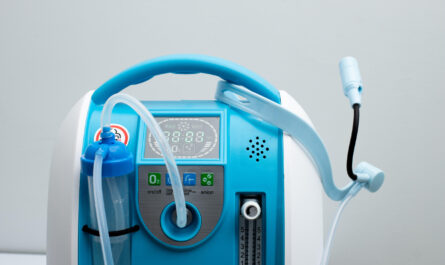The COVID-19 pandemic has placed unprecedented strain on healthcare systems worldwide. As hospitals around the globe struggle to cope with surging patient caseloads, one solution has emerged as a critical resource for bolstering clinical staff – temporary healthcare staffing. By supplementing existing personnel with traveling clinicians, medical facilities have been better able to manage patient demand without becoming overwhelmed. This article explores the growing role of temporary staffing in supporting hospitals and clinics during staffing shortages.
The Staffing Shortage Crisis
Even before COVID-19 hit, many parts of the world faced shortfalls in physicians, nurses, and other medical professionals. An aging population demanding more healthcare combined with an insufficient number of new graduates had created a personnel deficit. The pandemic has exacerbated this problem tenfold as patient volumes soared while some clinicians fell ill or had to self-isolate. Admitting waves of COVID-19 cases stretched resources to the breaking point, yet hospitals needed to maintain care for non-COVID patients too. Temporary staffing has helped fill in critical gaps to keep health systems functioning during immense pressure.
Travel Nursing to the Rescue
One form of Temporary Healthcare Staffing that surged in popularity is travel nursing. These clinicians embark on short-term assignments, usually 13 weeks long, to work at facilities desperate for additional bedside helpers. Travel nurses offer immediate relief as they can start within days rather than months it may take to hire permanent employees. Some factors that have boosted demand include higher pay rates, the ability to serve multiple regions impacted by COVID-19, and appeasing nurses wanting flexible work without a long-term commitment. Organizations like Aya Healthcare and NuWest Group have seen record numbers of nurses enroll in travel programs to assist overburdened facilities nationwide and overseas.
Physician Staffing Solutions
For physicians, temporary contracting arrangements have also grown more prevalent. Companies like StaffCare and Jackson Healthcare connect hospitals and clinics urgently requiring doctor coverage with available providers. This allows facilities to augment medical staffing as patient volumes fluctuate rather than permanently expanding overhead costs. Meanwhile, physicians gain opportunities to practice in new locations for short periods without relocating permanently. During COVID-19 surges, temporary doctors have enabled some overloaded hospitals to maintain comprehensive 24/7 physician coverage that may have otherwise been compromised. Their presence can avoid service reductions or diversions that disrupt patient care.
Allied Healthcare Staff Supplementation
Beyond nursing and physicians, Temporary Healthcare Staffing extends to other allied healthcare roles as well. Positions like respiratory therapists, medical technologists, pharmacists, and medical assistants have all seen increased contracting activity. For example, firms like Favorite Healthcare Staffing quickly deploy additional lab professionals, respiratory technicians, and imaging specialists when client facilities need to boost testing and diagnostic capabilities for large patient cohorts. Similarly, companies like Snelling place supplemental, short-term pharmacists and pharmacy technicians to help pharmacy departments efficiently process and dispense heightened prescription workloads during crises. Temporary allied staff augmentation has maintained comprehensive service levels and minimized operational disruptions caused by COVID-19 demand surges.
Evaluating the Model
While The benefits of temporary healthcare staffing have become clearer through challenges like COVID-19, some questions remain about long-term reliance on this model. Frequent replacement of permanent clinical employees with travelers raises concerns over continuity of care and lack of familiarity with facility systems. However, without temporary solutions many hospitals would have been unable to provide care during peaks. Looking ahead, strategic use of traveling providers to supplement permanent staff as needs fluctuate could optimize resources when fully integrated into long-term staffing plans. As health systems grapple with persistent personnel shortages, temporary staffing will likely continue growing in importance to bolster resiliency against future demand shocks.
The COVID-19 pandemic has exacerbated long-standing healthcare workforce challenges and caused staffing demand to skyrocket to unsustainable levels in many regions. Temporary healthcare staffing has emerged as a valuable lifeline, granting crucial flexibility for hospitals and clinics to dynamically scale personnel levels to match unpredictable patient influxes. From travel nurses and locum tenens doctors to roving allied providers, temporary clinical team members have helped understaffed systems maintain operations during times of emergency. Looking ahead, the long-term integration of supplemental traveling clinicians into staffing models may support improved system resilience against uncertain personnel demands.
*Note:
1. Source: Coherent Market Insights, Public sources, Desk research
2. We have leveraged AI tools to mine information and compile it.




